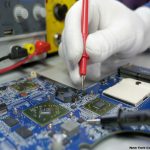 Batteries are the last thing on people’s minds when they are in a hospital. However, without batteries, there would be many barriers. There are many pieces of equipment that run on batteries, and this includes blood analyzers, heart monitors and infusion pumps, as well as defibrillators – so that’s a lot of Yuasa SWL2500EFR batteries!
Batteries are the last thing on people’s minds when they are in a hospital. However, without batteries, there would be many barriers. There are many pieces of equipment that run on batteries, and this includes blood analyzers, heart monitors and infusion pumps, as well as defibrillators – so that’s a lot of Yuasa SWL2500EFR batteries!
Reliable power sources are a must for hospitals. If a power outage were to occur, then they’d need backup equipment. The backup equipment used often runs on batteries, hence another reason why they are so important.
The US market for medical devices is huge, and it generates over $100 billion in revenue, and that is one of the largest markets in the world. Equipment manufacturers do experience issues when it comes to devices that operate on batteries. Battery chemistry is one of those issues and so are discharge profiles.
Battery Chemistry
The main AC supply is what powers many devices used in hospitals. This means batteries receive only a shallow discharge before they are recharged. One basic flaw is lead acid that is sealed up and lead acid that is regulated by a valve. The issue is internal resistance.
When internal resistance increases, then a drop in voltage can occur due the sudden need of power. This is a bad thing and can cause a bit of a problem. When batteries are matched to devices, manufacturers tend to make the mistake of not choosing batteries that have an appropriate amount of international resistance.
Fast Charging
High rate charging sessions can result in peak charging rates for batteries to decline and this is due to chemical changes and physical changes that the battery cells face. It’s a good idea to use the lowest current when charging the battery. Then it should be charged only when the rest of the battery’s capacity has dropped to a level where not a sufficient amount of power can be produced.
Portable dialysis machines need to be charged quickly. This is why doing the above is a smart thing to do. You want the unit to be charged as fast as possible, as this will ensure the patient is receiving the best care possible.
A large hospital can easily buy over 80,000 batteries and they dispose of those batteries, which can cause concerns about recycling. Many hospitals get rid of their batteries by throwing them in the trash, but this poses a serious risk to both humans and the environment because they contain heavy metals. These metals include mercury, nickel and cadmium to name a few.
Dealing With Batteries: How Hospitals Should Do It
Hospitals should implement a battery recycle program. Saving lives might be the most important thing a hospital does, but releasing patients into a toxic environment is something they should care about too. This is pretty much taking care of one problem, but neglecting another.
Hospital policies should have a mandate of targets and environmental goals. They should have a strategy in place with the aim to educate staff and to minimize cost. Assessing the number of batteries used within a hospital is a good step to take because this will help you create a battery recycling program.
Battery maintenance is a major issue that biomedical engineer techs face. In regards to developing patient care, batteries that are used in portable medical equipment play a crucial role. This is according to the AAMI Association.
Recycling Batteries Need To Be A Priority
The success of a program will depend on many factors, but hospitals should determine the pounds of batteries they will be recycling and evaluate patterns when it comes to purchasing batteries. In many cases, a vendor will go to the hospital to get the batteries and dispose of them properly. Furthermore, many hospitals work with vendors who don’t charge anything to get the batteries, and one of those vendors they often work with is the Rechargeable Battery Recycling Corporation.








